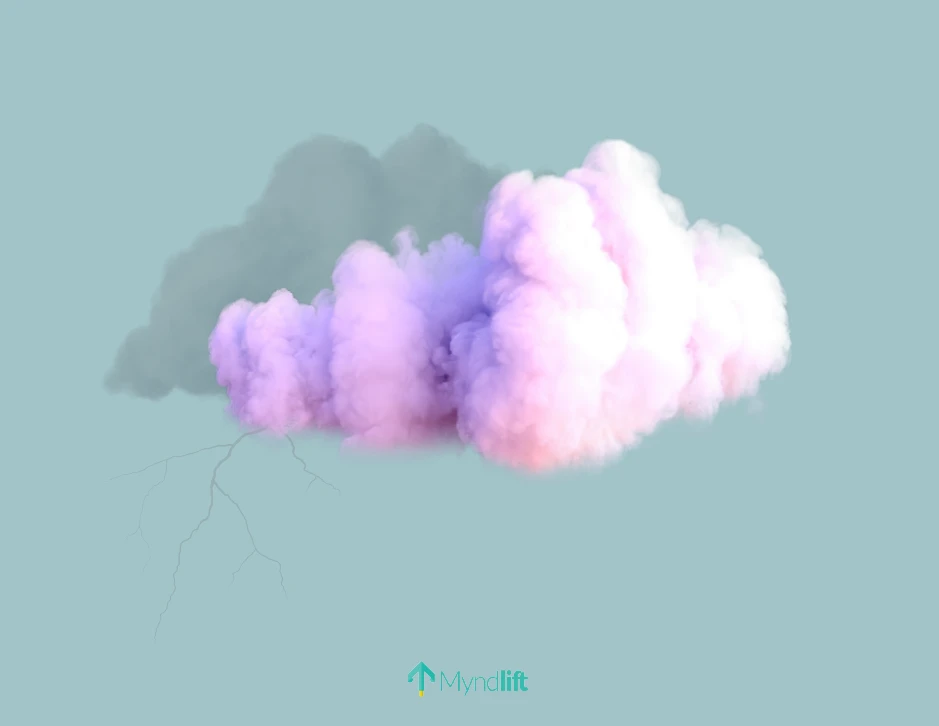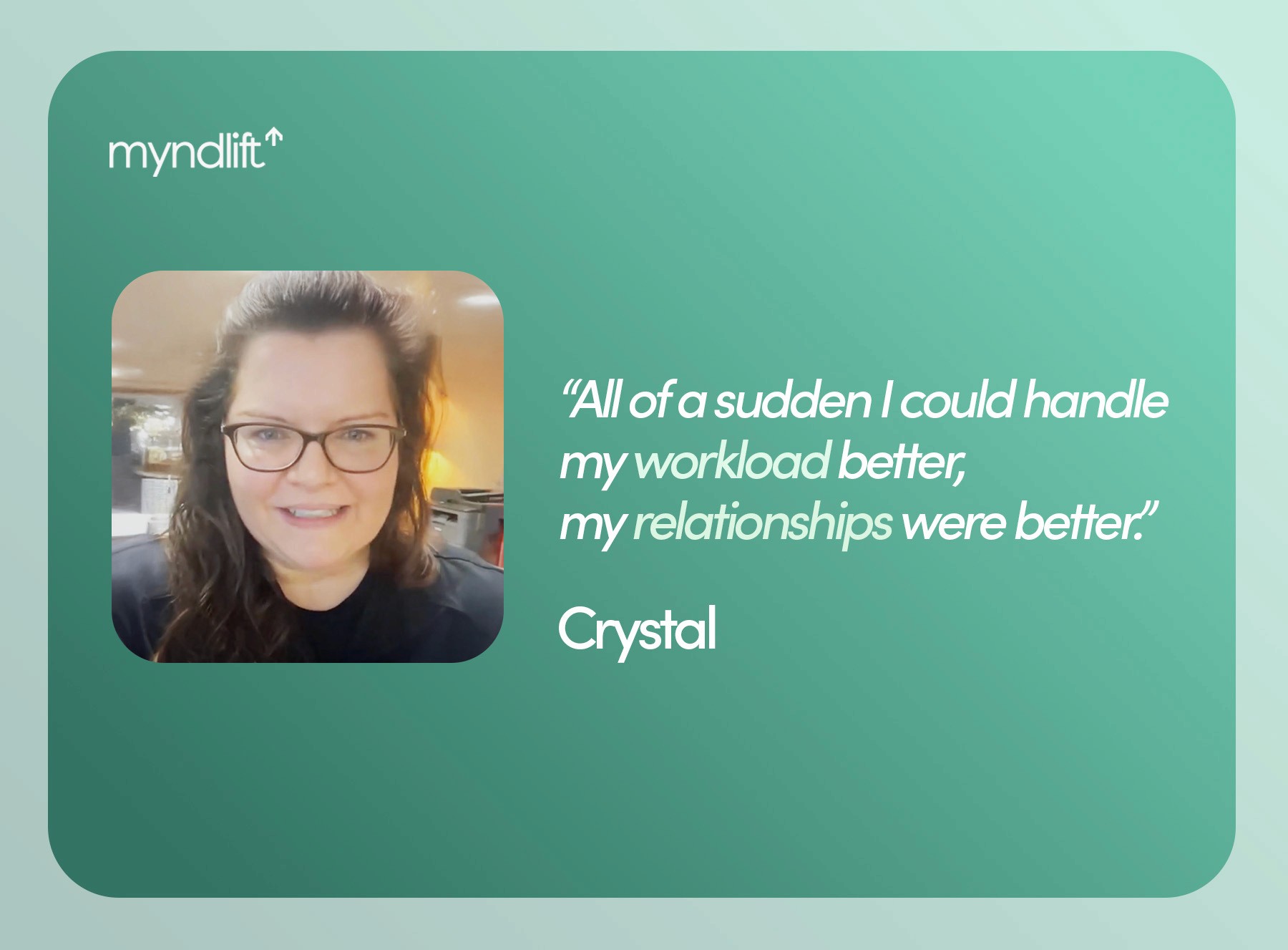High-functioning anxiety is not officially classified as a mental health condition because people who struggle with it are outwardly functioning well enough not to meet the criteria of having an anxiety disorder.
Signs of high-functioning anxiety: Perfectionism and procrastination, seeking reassurance, negative self-talk, and a lack of sleep.
You can cope with high-functioning anxiety symptoms by talking to a professional, prioritizing self-care, and practicing mindfulness.
This article was reviewed by Carola Tuerk, a cognitive neuroscientist and a scientific consultant who holds a Ph.D. in cognitive neuroscience.
When we think of anxiety disorders, we usually picture people who often feel nervous or restless and worry excessively. We tend to believe that they struggle to complete tasks and manage daily responsibilities, and we never stop to consider whether, on the outside, they're the "I got this" person. That they are pushing, overachieving, and accomplishing their goals. It would never cross our minds that they might have anxiety, but that’s because many of us are taught to look for certain indicators – like those we just mentioned.
So it may come as a shock to discover that despite the appearance of success, many high-achievers experience crippling self-doubt. They tend to feel unworthy and constantly fear being found out as the incompetent person their internal critic tells them that they are; they are struggling with signs of something called high-functioning anxiety.
What Is High-Functioning Anxiety?
High-functioning anxiety is not officially recognized and classified as a mental health condition; rather it's a term that refers to people who live with anxiety symptoms such as difficulty sleeping, excessive worrying, and an inner sense of dread. What differentiates people with high-functioning anxiety from those who have general anxiety is that the former are able to function well in areas such as work, school, personal lives, and finances.
This type of anxiety is not recognized as an official diagnosis because it can be difficult to discern since being "functional" is subjective. But that doesn't mean that the quality of life of people with high-functioning anxiety is not impacted. Rather, it means that they are outwardly functioning well enough not to meet the criteria of having an anxiety disorder.
For example, when faced with anxiety, people who qualify for a diagnosis tend to avoid difficult situations or tasks. In contrast, those with high-functioning anxiety tend to push themselves even harder. But this kind of behavior masks their struggles and often affects their wellbeing.
Another key difference is that high-functioning anxiety does not always physically present itself as general anxiety does. So while someone with generalized anxiety may experience physical indicators such as sweating, trembling, or nausea, people with high-functioning anxiety will rarely encounter these symptoms.
Instead, they'll notice these signs:
1. Perfectionism and Procrastination
Sign of High-Functioning Anxiety #1: Perfectionism and Procrastination
Perfectionism is an attitude that encourages setting very high standards and believing that achieving these standards is necessary to succeed. This can be a helpful trait in certain situations, as it can help ensure that we work toward our full potential. However, perfectionism can also lead to feelings of stress and anxiety.
According to The Happier Approach author Nancy Jane Smith, because we're so worried about reaching perfection, we might also be prone to procrastination, which is the habit of putting off or delaying things that need to be done.
For example, to avoid making a mistake, we might procrastinate until the last minute to finalize a work task, thus using the deadline as an excuse for any potential flaws.
Sign of High-Functioning Anxiety #2: Seeking Reassurance
When we feel anxious or uncertain, we may find ourselves seeking validation from others to ease our anxious thoughts and feelings.
For example, we may repeatedly ask questions such as, "Do you think I made the right decision?" or "Do you think I'm smart enough to do this?” We might also seek reassurance from our friends and ask if they are mad at us even though we haven't done anything to upset them.
It’s natural to seek some reassurance when confronted with uncertainty. However, there's a difference between natural and unproductive reassurance-seeking, where the latter happens frequently and relies on an attempt to eradicate doubt in order to make decisions, judgments, and actions.
This kind of behavior might create a vicious cycle that can exacerbate our anxiety and increase our need for constant reassurance. Furthermore, it might decrease our confidence in our own problem-solving abilities and make us less willing to accept the discomfort of uncertainty.
Sign of High-Functioning Anxiety #3: Negative Self-Talk
Everyone has an inner critic, and they’re not necessarily bad. For example, this voice can keep us focused on our goals and remind us to make healthy and responsible decisions. However, if it's overly negative, the voice of our inner critic runs the risk of becoming the voice of constant negative self-talk, and it can exacerbate our anxiety.
Some examples of negative self-talk include thoughts such as, “I can't do anything right”, "I'll never be successful", "I'm a failure", "I'm not good enough", or "Nobody likes me."
People with high-functioning anxiety usually have a strong desire to please and be perfect, so they may be inclined to take on negative thoughts as facts. This can make it harder to recognize it as separate from themselves and, therefore, challenging to address.
Fortunately, you can defeat negative self-talk before it defeats you. There are ways to overcome these thoughts with various cognitive restructuring techniques.
Sign of High-Functioning Anxiety #4: Lack of Sleep
Sleep problems, such as difficulty falling asleep or waking up too early, are common in many anxiety disorders, and can also be present in those with high-functioning anxiety. That's because anxiety can cause our body to experience physical symptoms of stress, such as an increased heart rate, which can make it difficult to relax and drift off.
Anxiety can also make it difficult to stay asleep, as it can cause intrusive and intense thoughts which can awaken us multiple times during the night. For example, we might wake up at 3AM worried about a recent conversation, our to-do list, or an upcoming project at work.
Without a good night's sleep, it can be hard to be productive and have the energy to manage the symptoms of high-functioning anxiety. This can put us at a higher risk for mental and physical health issues, so it’s important to find ways to get restful sleep.
How to Cope With High-Functioning Anxiety?
High-functioning anxiety can make it challenging to stay on track and achieve our goals, but with the right coping strategies, we can manage it and be more productive in all aspects of our life. Here are some ways to relieve the symptoms:
Talk to a professional: For example, if you find yourself feeling excessively worried or stressed about everyday activities, if you're having difficulty concentrating or sleeping, if you are avoiding social situations, feeling overwhelmed, or having a constant fear of the worst-case scenario, it's important to reach out for help and talk to a mental health professional to find ways to manage your anxiety.
Prioritize self-care: Take regular daily breaks to do activities that bring you joy and help you relax, such as yoga, deep breathing exercises, or a leisurely walk. In fact, daily walking is an excellent way to clear your mind of clutter and get in touch with the present moment.
Pro tip: Try to take your daily walks in nature when possible. A review of 64 research papers identified that spending time in nature provides an essential antidote to modern life stresses and strains.Practice mindfulness: Practice being mindful of your thoughts, feelings, and body sensations. This can help ground you in the present and reduce anxious thoughts. According to a neuroscientist and associate professor of psychology at the University of Miami, Dr. Amishi Jhato Dr. Jha, doing certain mindfulness exercises for 12 minutes, 3-5 days a week can help declutter your mind.
Try doing neurofeedback: Neurofeedback is a type of brain training that can alleviate anxiety symptoms and help you improve your sleep as well as cognitive performance. Nowadays, you can do it from the comfort of your home and train by playing video games or any streaming platform on a mobile device, while a neurofeedback device measures your brain activity and helps you optimize it.
Many people walk around with intense levels of fear and worry that almost qualify as an anxiety disorder, yet they are forcing themselves to keep going. They still manage to get up in the morning and make their way to work. And while tasks continue to be completed and goals achieved, high-functioning anxiety can be detrimental to one's physical health, mental wellbeing, and interpersonal relationships.
That's why it's important to seek help and find ways to cope. With dedication and proper mental health tools, we can work to recognize these symptoms when they appear and cope with them in a healthy manner. And we can still get things done!
Myndlift provides professional supervised brain training that can be done right from the comfort of your home. Connect with us to kick start your journey for better brain health and wellbeing from here.
About the author:
Denisa Cerna
Denisa Cerna is a non-fiction and fiction writer who's passionate about psychology, mental health, and personal development. She's always on a quest to develop a better insight into the workings of the human mind, be it via reading psychology books or combing through research papers.
About the checker:
Carola Tuerk, Ph.D.
Carola is a cognitive neuroscientist and a scientific consultant for Myndlift. In her research, she is particularly interested in how early life experiences shape brain development and mental health with a particular focus on children. She has obtained a BSc in psychology, an MSc in neuroscience, and a PhD in cognitive neuroscience and is passionate about brain health. In her free time, Carola likes to exercise or play music to relax.
References
Substance Abuse and Mental Health Services Administration. Impact of the DSM-IV to DSM-5 Changes on the National Survey on Drug Use and Health [Internet]. Rockville (MD): Substance Abuse and Mental Health Services Administration (US); 2016 Jun. Table 3.15, DSM-IV to DSM-5 Generalized Anxiety Disorder Comparison.
Erozkan, Atilgan. (2016). Understanding the Role of Dimensions of Perfectionism on Anxiety Sensitivity. Universal Journal of Educational Research.
Nancy Jane Smith, The Happier Approach: Be Kind to Yourself, Feel Happier, and Still Accomplish Your Goals, Live Happier Publishing Columbus, 2018.
Cougle JR, Fitch KE, Fincham FD, Riccardi CJ, Keough ME, Timpano KR. Excessive reassurance seeking and anxiety pathology: tests of incremental associations and directionality. J Anxiety Disord. 2012
Spinhoven P, van Hemert AM, Penninx BW. Repetitive negative thinking as a predictor of depression and anxiety: A longitudinal cohort study. J Affect Disord. 2018 Dec 1;241:216-225. doi: 10.1016/j.jad.2018.08.037. Epub 2018 Aug 10. PMID: 30138805.
Mellman TA. Sleep and anxiety disorders. Psychiatr Clin North Am. 2006 Dec;29(4):1047-58; abstract x. doi: 10.1016/j.psc.2006.08.005. PMID: 17118281.
Trotman GP, Veldhuijzen van Zanten JJCS, Davies J, Möller C, Ginty AT, Williams SE. Associations between heart rate, perceived heart rate, and anxiety during acute psychological stress. Anxiety Stress Coping. 2019 Nov;32(6):711-727. doi: 10.1080/10615806.2019.1648794.
Hansen MM, Jones R, Tocchini K. Shinrin-Yoku (Forest Bathing) and Nature Therapy: A State-of-the-Art Review. Int J Environ Res Public Health. 2017 Jul 28;14(8):851. doi: 10.3390/ijerph14080851. PMID: 28788101; PMCID: PMC5580555.





